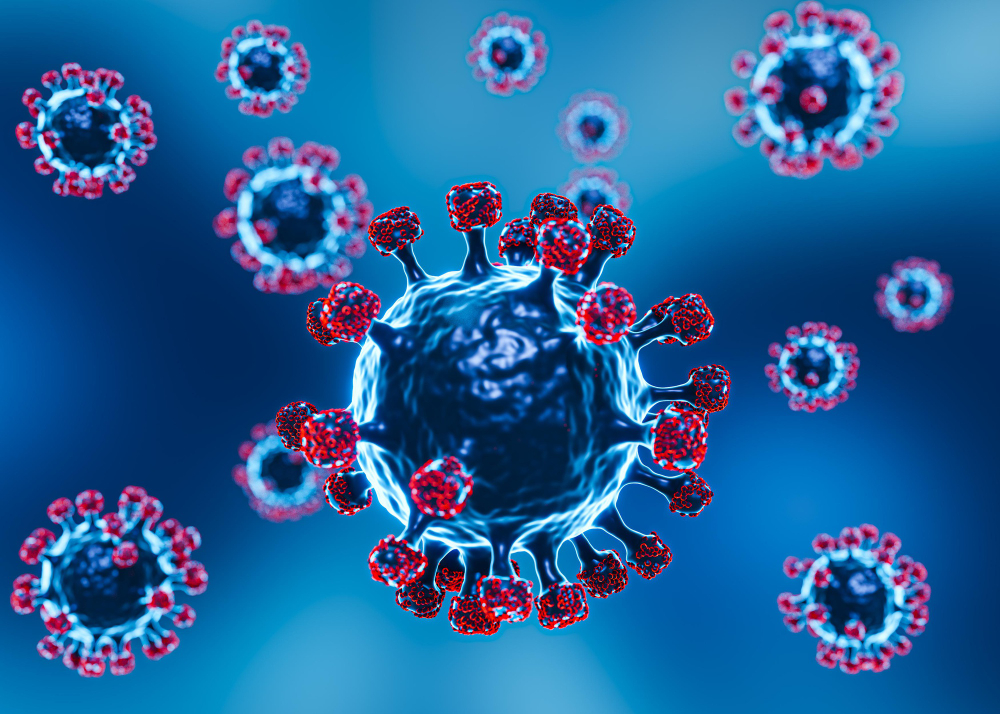Women, in general, are genuinely concerned regarding the impact of coronavirus (COVID-19) on them and their babies. This is a common cause of concern among the pregnant, those who have recently delivered a baby, or the breastfeeding women folks. What you should know is as follows.

How risky is it?
COVID-19 has a modest overall risk to pregnant women. Pregnancy, on the other hand, raises the chance of severe sickness and mortality from COVID-19. As per a survey conducted by the disease control and prevention authorities, pregnant women with COVID-19 are more likely to experience respiratory issues needing urgent care (CDC). Pregnant women have a higher chance of finding themselves in the ventilator.
-
Can it harm the kid of an infected mother before delivery?
There’s no proof that the virus causes birth abnormalities, miscarriage, or other issues. However, a fever in the first trimester of pregnancy, whether caused by COVID-19 or anything else, can increase the risk of birth abnormalities. Later in their pregnancy, chances of having severe lung infections enhance their chances of having a premature baby. Some babies born to coronavirus-infected mothers arrived prematurely. However, it is still not clear if the virus is playing the culprit here.
-
Is transmission possible from infected mother to baby during pregnancy or delivery?
Few newborns have become Covid positive, as per some reports. That doesn’t mean kids got it from their moms while they were still in the womb. The most common way by which COVID-19 spreads is through water droplets produced when an infected person coughs or sneezes. According to experts, infected babies are more likely to have picked up the virus from their mother or a caregiver after birth.
-
Is breastfeed feeding okay for the infected mother?
Only a few breastfeeding women have been tested for coronavirus by scientists. Their milk samples weren’t infected with the virus. This isn’t to say that you can’t pass the virus on to your baby if you cough or sneeze while nursing.
Feeding the baby via a non-infected person or pumping are probably the two safest options available in this situation. If you want to breastfeed your baby, make sure you wash your hands first and wear a face mask. When bottle-feeding your baby, follow the same precautions.
Concerns over about breastfeeding
According to research, the COVID-19 virus is unlikely to be transmitted to babies through the breastmilk of breastfeeding women. Whether a mother with Corona infection can pass the virus to the newborn through coughing and sneezing while breastfeeding is a big question.
Ample precautions should be taken to stop the virus from infecting the baby if the mother has COVID-19 or is waiting for the test results. This involves frequent washing hands before touching the newborn and, to remain safe, breastfeed while dawning a face mask.
If you’re pumping breast milk, wash your hands before touching any pump or bottle parts, and clean your pump according to the manufacturer’s instructions. If at all feasible, have someone healthy administer the expressed breast milk to the baby.
The risks of contracting the coronavirus while being pregnant
Because the virus is still so new, there isn’t much information available. Experts, on the other hand, are drawing inferences from their previous experiences. According to sources, pregnant women who have been infected with coronaviruses have a higher risk of having a bad pregnancy than those who haven’t.
In pregnant women infected with other coronaviruses, miscarriage, preterm birth, stillbirth, and a more severe infection have all been reported. And, regardless of the cause, high fever in the first trimester during pregnancy can result in congenital disabilities.
Take a pause and relax. All this may appear to be extremely frightening. But, wait, not all is bad news, especially in the case of infected pregnant women who have given birth.
The vast majority of pregnant women with COVID-19 did not have severe cases, according to a WHO that looked at a small sample of them. COVID-19 was severe in 8% of the 147 women studied and critical in 1% of the women.
What the Royal College of Obstetricians and Gynecologists has to say?

As per their study, some infected women have given birth to premature babies, but it’s still not clear if they were early because of the infection or because the doctors decided to deliver prematurely to save the lives of the expectant sick mothers. There’s also no evidence that this coronavirus causes miscarriage, according to the researchers.
During pregnancy or childbirth, can the virus infect the baby?
As per the new Covid positive mothers, the answer is most likely no — or, more direct, there is no proof to this.
COVID-19 is a virus that spreads through droplets from person to person as soon as they cough or sneeze. Only after your baby is born can they be exposed to these droplets.
The Study
There was no trace of the virus in samples drawn from the amniotic fluid, cord blood, or throat swabs of the newborns as per a study done on some Covid infected pregnant women who contracted the virus during the third trimester of their pregnancy.
Three newborns born to COVID-19-positive mothers tested positive for the virus in one slightly larger study. Apart from them, the 30 other newborns within the group tested negative. The researchers are still unsure if the babies who tested positive got infected in their mother’s womb or soon after they were born.
Final Takeaway
Constant worry is plaguing today’s pregnant women like never before. It has become similar to swollen ankles and constipation. However, it’s critical to maintain a sense of proportion. Let’s admit that this new coronavirus is dangerous, but you’re not a sitting duck, pregnant or not.





 What is Miscarriage and What are its Causes?
What is Miscarriage and What are its Causes?